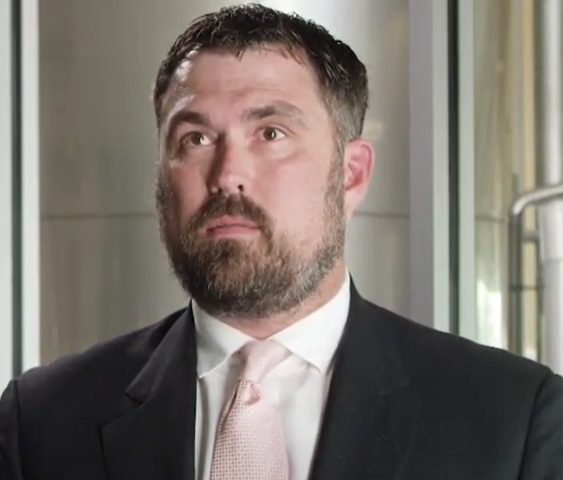Veteran Morgan Luttrell believes the doctors at the Department of Veteran's Affairs are wonderful, but they are handcuffed. The VA is not built to handle the complex symptoms and treatments related to brain injury. Will they catch up or go under?
Learn more about some of the treatments available for those recovering from brain injury and PTSD using our Treatment Hub.
Watch more videos from Morgan Luttrell.
Department of Veterans Affairs is, they’re out of their wheelhouse, they’re out of their league. They’re dealing with World War II, Vietnam, Korea, Gulf War guys and the boat is about to be scuttled. The complexities of the injuries and the emotional instabilities that we see today was nothing like it was back in the day, where they could get a handle of it - on it. Or everybody just died. And back then they didn’t talk. They didn’t care. They didn’t - they were like I don’t have a problem. Those boys and girls were the greatest generation for a reason. Not to take anything away from what - from our other veterans in other wars, same thing. Science, technology, research has the ability to see and define things that they didn’t back in those days. Well, who’s responsible and directly correlated with those responsibilities, those treatment modalities? That’s the VA. There’s so many problems, so many complexities, with the lack of - lack of knowledge may not be the right term to use - but their ability to get their head around it. One doctor can’t handle all of that, two doctors, ten doctors can’t handle all of that. You have one guy or girl walking in with ten to fifteen different problems. You can’t see a general practitioner for those problems; you have to see ten to fifteen different doctors. And you can’t do that in the VA, they can’ handle that. So, the worst part about that is, my generation is not here yet. They haven’t shown up at the VA. And we’ve been fighting for over sixteen years. Guess what? The boat will sink. It will scuttle. That Poseidon wave is coming. That’s us. And it’s going to wash. The VA can’t get out of their own way, in my opinion. And as a veteran, I don’t have a problem saying that. It’s just bogged down in policy and procedure in a way that the ones that suffer the most are the veterans. And that’s a sad state. They’re up there arguing about some things they shouldn’t be arguing about. They forget what the - who is important here. Honestly - publish that. I’m proud to say it. They forget about the veterans, in my opinion at certain levels. The doctors there are amazing. I’ll never take away anything. But the doctors are - they’re handcuffed. And we need to do something and we’re trying. This administration is trying so hard. And my hat’s off to them. They are really trying to make the effort through the partnerships with the other departments inside the government, they are really making the effort to make this change. But right now we’re not there yet. That’s where these other public/private institutes of research medicine, these foundations that are out there, forty thousand, four hundred thousand, I mean, the list of the numbers, it grows exponentially daily. Those are the ones that are making the difference in these veterans’ lives. But it’s almost incomprehensible. This video was produced by BrainLine thanks to generous support from the Infinite Hero Foundation.
This video was produced by BrainLine thanks to generous support from the Infinite Hero Foundation.
About the author: Morgan Luttrell
Morgan Luttrell is a Navy SEAL veteran. He sustained back injures including major damage to his spinal cord and suffered a traumatic brain injury in a helicopter crash during training. When he got out, he said he traveled the country trying to figure out how to “fix” his brain. He earned a master’s degree in applied cognition and neuroscience and a Ph.D. focusing his studies on helping veterans with PTSD and other traumatic brain injuries.

